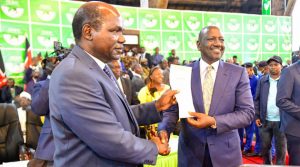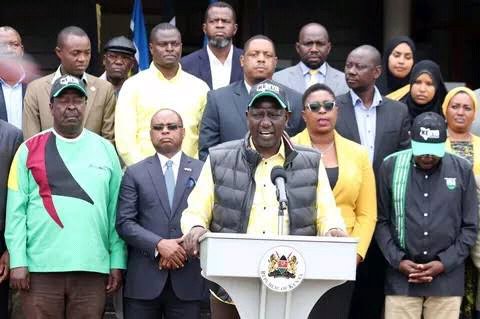The president-elect on Monday, through Kithure Kindiki Advocates, filed an affidavit before the Apex court saying that the election was held by IEBC as a body and thus individual commissioners should not be enjoined individually in the case.

William Ruto receiving the election certificate from IEBC Chair Wafula Chebukati
The results were rejected by the four IEBC commissioners, led by Juliana Cherera, who cited “opaqueness” in the verification process.
In a rejoinder, the Supreme Court denied the aforementioned request, noting that the petitions filed before the court by the commissioners contain evidence that will be critical in the case’s hearing.
“It is not lost on us that one of the main grounds on which the three Petitions are based is that the 1st respondent (IEBC) failed to perform its functions. This claim is based on a highly publicized Press statement by these very respondents disowning the declaration of the Presidential Election results by the 2nd Respondent (Chebukati),” reads court papers.
“The latter cannot be faulted for seeking to place before the court any evidence emanating from the four.”
Regarding the request to remove the Attorney General (AG) from the proceedings, the court stated that given the capacity of the office he holds, he does not require the assistance of Dr. Ruto to join the proceedings.
Ruto claimed that unless the court grants leave for him to be joined as a Friend of the Court, the AG (13th respondent) has no role in the petition.
“The holder of such an office, has more capacity than any other litigant in this country to fend off any attempts to join him in proceedings to which he ought not to be a party. As the AG he does not need the aid of the 9th respondent to accomplish such a routine task.”
William Ruto seeks to have his election upheld by the Supreme court.



